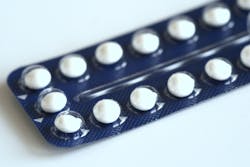Women aged 45 and above who consumed estrogen hormone therapy in tablet format exhibited a higher propensity for developing hypertension compared to individuals employing transdermal or vaginal applications, as per the latest study published in Hypertension, an American Heart Association journal subject to peer review.
The American Heart Association states that postmenopausal women experience reduced production of estrogen and progesterone in their bodies. These changes could potentially elevate the susceptibility to cardiovascular conditions, such as heart failure.
Prescribed for alleviating menopausal symptoms, gender-affirming care, and contraception, hormone therapy has been previously associated with potential reductions in cardiovascular disease risk among menopausal women under 60 years old or within 10 years of menopause. However, the impact of various hormone therapy types on blood pressure in menopausal women remains uncertain, as stated by the authors of this study. They highlighted that high blood pressure, a modifiable risk factor for cardiovascular disease, requires further investigation regarding its relation to different hormone therapy approaches.
This study encompassed a substantial cohort of more than 112,000 women aged 45 years and above. These women were identified through health administrative data in Alberta, Canada, between 2008 and 2019 based on their fulfillment of at least two consecutive prescriptions for estrogen-only hormone therapy within a six-month cycle. The primary focus was to determine the occurrence of high blood pressure (hypertension), which was identified by analyzing health records.
Initially, the researchers examined the correlation between the method of administration for estrogen-only hormone therapy and the likelihood of developing high blood pressure after at least one year of commencing the treatment. They analyzed three different routes of hormone therapy administration: oral (taken by mouth), transdermal (applied to the skin), and vaginal application. Furthermore, the researchers assessed the specific formulation of estrogen employed and its association with the risk of developing high blood pressure. To conduct this study, the researchers scrutinized medical records of individuals undergoing estrogen-only hormone therapy. The two most prevalent forms of estrogen used by the participants were estradiol, which is a synthetic form closely resembling the natural estrogen produced in women's bodies during their premenopausal years, and conjugated equine estrogen, an estrogen therapy derived from animals and the oldest type of estrogen treatment.
The analysis yielded the following findings:
- Women who underwent oral estrogen therapy exhibited a 14% elevated risk of developing high blood pressure compared to those employing transdermal estrogen. Additionally, they had a 19% higher risk of developing high blood pressure compared to individuals using vaginal estrogen creams or suppositories. Notably, when considering age as a factor, a more pronounced association was observed among women below the age of 70 in comparison to those above 70.
- In comparison to estradiol, the use of conjugated equine estrogen was associated with an 8% increased risk of developing high blood pressure.

